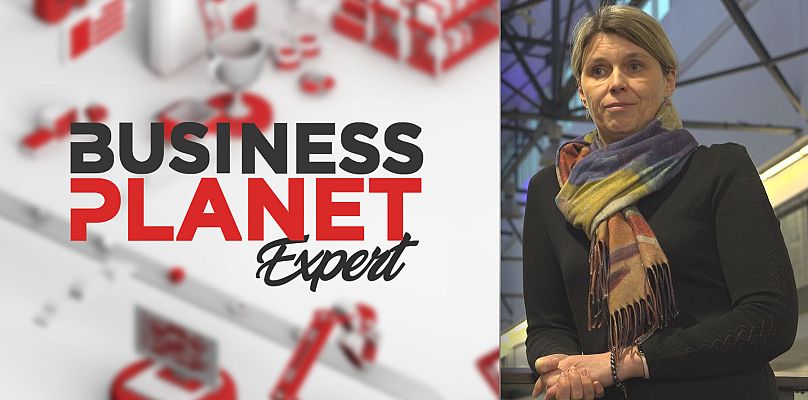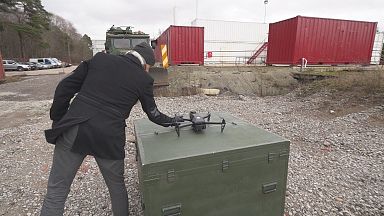Business Planet heads to Estonia to see how firms in the defence and security sector are unleashing a wave of innovation through cooperation.
Business Planet heads to Estonia to see how firms in the country's defence and security sector are unleashing a wave of innovation through cooperation.
Firms that join forces can be hotbeds of innovation, especially high-tech industries like defence and security, which are frequently at the vanguard of pioneering research and technology.
Cluster cooperation
Estonian SME DefSecIntel is a specialist in surveillance and control. The firm produces a range of autonomous border security systems, both on land and in the air. One of its core products is an ultra-fast mini drone, which has built-in Artificial Intelligence detection to identify objects on the ground.
The company is a member of the Defence Estonia cluster. Jaanus Tamm, the firm's President, says being a member has brought many benefits.
“It gave us the ideal platform to cooperate with defence companies in Europe and enabled us to get knowledge about supply chains of the industry, which is crucial for SMEs like us.”
Business allies, not rivals
Through the cluster, DefSecIntel got the chance to join forces with Threod Systems, another Estonian firm which builds drones with long-range aerial surveillance. By becoming allies, both companies are now able to offer a wider range of reconnaissance solutions to their customers.
“The cluster cooperation cut time to market by half, thanks to the product integration which led to joint sales," explains Tamm, adding: "It also saved us approximately one third of our travel budget for sales.”
Developing Europe's defence industry
More than 2500 highly innovative SMEs make up Europe’s defence sector.
In the case of drones, the technology can also be adapted for civilian use, like fighting forest fires. These seedbeds of innovation will also be crucial if Europe is to become more autonomous with regard to its own defence.
The European Commission wants such firms to take full advantage of the EU support on offer - be it clustering, or funding programmes like the European Defence Fund, European Structural and Investment Funds or Horizon 2020.
The Defence Estonia Cluster aims to enhance cooperation between Estonian companies working in the country's defence and security sector. Business Planet spoke to its manager, Helen Naarits, to find out more about what services the cluster provides.
What are the big advantages for companies inside your cluster?
“There are two main advantages. One is joint sales, with EU financial support, and the other is working groups where companies can come together to brainstorm for better product integration. The latest working group we have is focused on Artificial Intelligence.”
How do you help companies inside the cluster scale-up and succeed?
“We help our companies to grow by creating opportunities for them to attend matchmaking events, networking events, B2B meetings. We also provide seminars and training for them. In addition, we help them to export and to attend international exhibitions.”
What kind of EU support have you received and how does this filter through to your companies?
“We have received funding from the EU Regional Development Fund, which has helped our companies to export to international markets, to attend exhibitions and to arrange training. We are also part of the EU’s Cluster Go International programme, which is also helping our SMEs to grow.”
If I’m an entrepreneur or small firm elsewhere in Europe, can I connect with you?
“Sure you can, just contact us, as we have many contacts in Estonia and in Europe.”
Useful facts
Defence-related small and medium-sized enterprises are key players in terms of innovation and growth. There are more than 2,500 SMEs playing a central role in complex defence supply chains in Europe.
The European Commission wants the SMEs operating in this sector to take full advantage of the available EU support, including: the European Defence Fund, European Structural and Investment Funds, Horizon 2020 or Clustering.
The Defence Estonia Cluster aims to enhance cooperation between Estonian companies, R&D institutions and clients. It works to foster participation in international projects and programmes in order to increase the export capability and sales of Estonian companies in the defence and security market.












